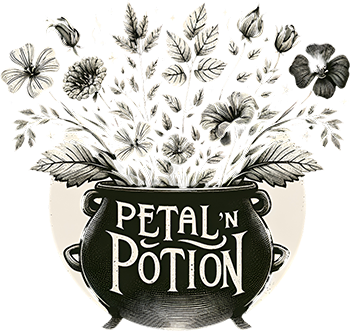P e p p e r m i n t
Peppermint (Mentha × piperita) is a hybrid mint, a cross between watermint and spearmint.
It is widely known for its refreshing flavor and aroma, and it has been used in traditional medicine for its multiple health benefits.
Benefits
- Digestive Health: Eases digestive issues such as bloating, gas, and indigestion; can also help with irritable bowel syndrome (IBS).
- Respiratory Relief: Acts as a decongestant and can alleviate symptoms of colds, coughs, and sinusitis.
- Pain Relief: Provides relief from headaches, muscle pain, and menstrual cramps when applied topically.
- Antimicrobial Properties: Effective against certain bacteria and fungi, helping to prevent infections.
- Mental Clarity: Enhances focus, alleviates stress, and promotes relaxation.
- Skin Health: Soothes itchy or irritated skin and can be used to treat conditions such as dermatitis and hives.
Active Compounds
- Menthol: The primary active component that provides cooling and analgesic effects.
- Menthone: Contributes to the minty aroma and offers additional therapeutic benefits.
- Flavonoids: Provide antioxidant benefits that protect against cellular damage.
- Rosmarinic Acid: Known for its anti-inflammatory and antioxidant properties.
Who Should Avoid This
- Individuals with GERD: Those with gastroesophageal reflux disease should avoid peppermint as it may exacerbate the condition.
- People with Allergies: Those allergic to mint or related plants should avoid peppermint.
- Pregnant and Nursing Women: Due to limited safety data, consult a healthcare provider before use.
- Children: Peppermint oil should not be used on the face or chest of infants and small children due to the risk of respiratory distress.
Warnings
While peppermint offers numerous health benefits, some precautions and potential side effects should be considered:
- Gastroesophageal Reflux Disease (GERD): Peppermint can relax the lower esophageal sphincter, potentially worsening symptoms.
- Skin Sensitivity: Can cause skin irritation or allergic reactions, especially in sensitive individuals.
- Pregnancy and Breastfeeding: Consult a healthcare provider before use, as safety data is limited.
- Interactions with Medications: May interact with certain medications, including those for reducing stomach acid and blood pressure.
Usage Guidelines
Peppermint can be used both short-term and long-term, depending on the desired health benefits. For digestive issues, it is typically used until symptoms improve. For ongoing benefits such as mental clarity or skin health, longer-term use may be suitable. Always consult with a healthcare provider to determine the correct dosage and duration for your specific needs.
